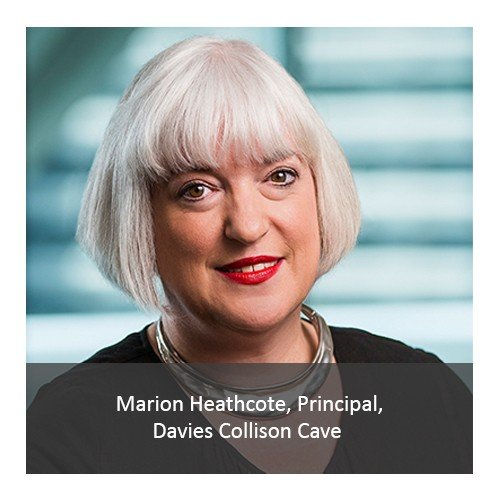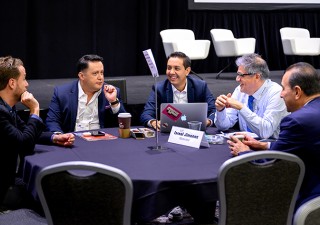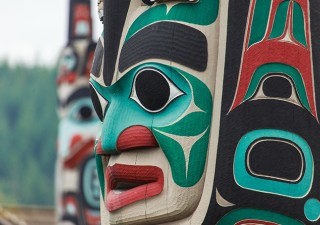Indigenous Knowledge Consultations 2021 by IP Australia open until May 25, 2021
31 March 2021

IP Australia’s Indigenous Knowledge (IK) Consultations 2021 is now open for comments by Aboriginal and Torres Strait Islander people and other Australians.
Australia’s IP office is exploring ways by which the country’s intellectual property system can help Aboriginal and Torres Strait Islander people in the protection and exploitation of their own IK.
Indigenous Knowledge includes Traditional Cultural Expressions and Traditional Knowledge. Under Traditional Cultural Expressions are music, stories, dance, designs, visual art, crafts, symbols, languages, architecture and others. Meanwhile, Traditional Knowledge refers to skills, practices and innovations in agriculture, science, technology, ecology, medicine, biodiversity including genetic resources, among others. It is important to note that in some regions in Australia, individuals wanting to acquire genetic resources for their research and commercial activities should first get the consent of the local indigenous community.

According to Marion Heathcote, a principal at Davies Collison Cave in Sydney, this consultation is long overdue.
“Currently there is no specific mechanism in place for the protection of indigenous IP outside of the standard parameters of the IP protection system. This has been long held as problematic not only in Australia but in most other jurisdictions. This has largely been because the current IP modalities are not adequate to address elemental factors in indigenous IP especially as they relate to concepts of ownership, identification, innovation and tangibility. This position continues notwithstanding most countries, including Australia, being signatories to the United Nations Declaration of the Rights of Indigenous People or UNDRIP,” said Heathcote.
Specifically, IP Australia is seeking feedback from owners and users of IK on four points. One of this is the establishment of an Indigenous Advisory Panel for IP Australia.
“This is a really positive move,” said Mark Metzeling, special counsel at Macpherson Kelley in Brisbane. “It's the first step in being able to acknowledge what IK means to indigenous Australians and how it’s valued by them. It will also assist with one of the key issues for indigenous Australians, being the misappropriation of IK. Further, it will aid in the development of laws with indigenous Australians to protect IK, rather than implementing laws that don’t adequately address the real value and sacredness of IK to indigenous Australians.”
Heathcote agrees that the formation of an advisory panel composed of indigenous Australians is essential.
“In order to ensure the credibility of any mechanism which seeks to protect indigenous IP, the custodians of that property need to have a primary role in its determination. To the extent that Western IP regimes can be utilized, at least to some extent, to protect the integrity of certain aspects of indigenous IP, it has to be with indigenous engagement,” she said.
Heathcote added it is equally important to at least define the role of the panel, put in place mechanisms to ensure the panel’s importance and provide opportunities for diversity, inclusion and self-determination.
The other key points are: enhancement of the process for trademarks and designs, creation of a culture of transparency and recognition where the source of IK used is disclosed in new innovationsandexploration of interest in authenticity labelling to promote Indigenous products.
“Indigenous Australians will welcome this as they have been seeking it for a long time,” said Metzeling. “However, for the majority of indigenous Australians, it isn’t the financial benefit that may come from IK protection, but it’s more of the cultural protection that they have been looking to attain. As mentioned above, cultural misappropriation is a significant issue for indigenous Australians and the cessation of this is a significant goal of indigenous Australians.”
For Heathcote, what is important is keeping the momentum without getting bogged down in the policy of consultation.
“The painstakingly slow progress of the WIPO Intergovernmental Committee progress at the international level does not need to be replicated. Meaningful progress can and should occur at a state level, and has been committed to as part of the UNDRIP. In the rhetoric of stakeholder engagement, it is important that the traditional custodians are represented, have a voice and more importantly that voice is heard. No doubt education is required. This is necessary as a precursor for anybody engaging in a system dogged with the intricacies of the IP system, and it behooves us to make sure those who are and should be participating in those discussions are provided with the appropriate support, knowledge and understanding to feel both comfortable and confident both in their engagement and in the consultation process,” Heathcote explained.
The Indigenous Knowledge Consultations 2021 will be open until May 25, 2021.
Espie Angelica A. de Leon






